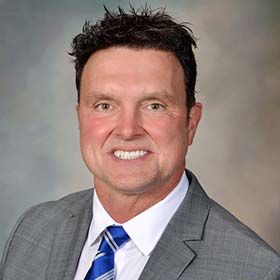
Family Birth Center
- Overview
- About the Birth Center
- Tour the Birth Center
- Special Care Nursery
- Safety and Security
- Teleneonatology
- Getting Ready for Baby
- Labor and Delivery
- After Delivery
- Other Resources
Recent Blogs
Family Birth Center in Mankato
Whether a first-time or repeat mom, our maternity program offers continued care from the healthcare provider's office to the delivery room. Your healthcare provider collaborates with a team of experts to ensure you and your baby receive the care you need. They care for low- and high-risk pregnancies. And because no two moms or pregnancies are the same, we offer choices on everything from the type of healthcare provider you choose to assist with your baby's birth to pain relief options — all delivered in a facility designed with family in mind.
This is a special time for you and your family. Our goal is to provide you with the resources you need to feel confident and secure throughout your pregnancy and after. We offer pregnancy information, classes to prepare you for labor and delivery and for after baby is born, virtual facility tours, lactation support and parenting information.
Locations
Hospital and Clinic
1025 Marsh St., Mankato, MN 56001- Birth Center Hours:
- Open 24 hours
- After the main entrance is locked, use Emergency Department entrance.





